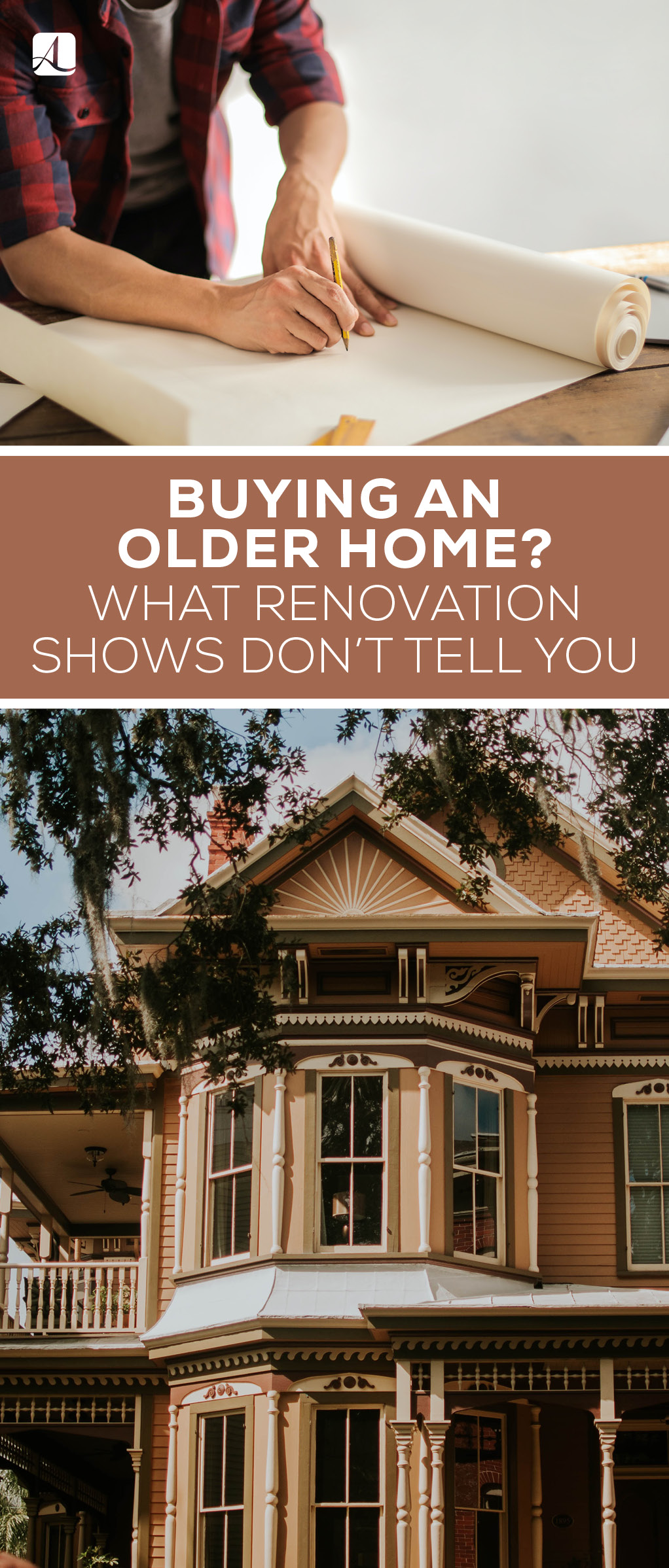Buying an Older Home? Here’s What Renovation Shows Don’t Tell You
Older homes come with a lot of charm and potential, and home renovation shows make the process of restoration and upgrading look like a piece of cake.
If you have your heart set on a home with history, here’s what you’ll need to do so you aren’t shocked or frustrated during the improvement process down the road.

Budget more for projects
Home improvements can go over-budget when the digging or demolition begins and reveals issues. However, older homes are especially susceptible to going over-budget as things rarely go as planned. Ensure you have more than the estimated costs available if you need to put more money than you anticipated toward the project.
Always have an emergency fund
Even when you aren’t breaking ground on a project, there are regular maintenance costs to consider. Common problems, such as pipe issues, septic system failure, and foundation cracks are to be expected in an older home. Be sure to have your real estate agent help you get a thorough inspection while looking at a potential home so you can make a list of repairs you want the seller to cover. By doing so, you can stay ahead of any expensive and serious issues.

Do your research
If you’re not a home expert, it might be hard to see red flags. Do your research ahead of time on the time period your potential home was built during. For example, if construction was before the 1970s, be wary of lead paint and radon. If the home has hazardous materials, it doesn’t mean you can’t buy the property, but you should add it to your list of fixes and budget for its removal. Additionally, investigate the building structures, such as the roof and walls, which could require the help of a specific home specialist to be maintained or repaired.
Interview your inspectors and contractors
As with any field of work, inspectors and contractors can have varying opinions on home issues and projects. Find professionals who understand the vision you have for your home and will respect your choices. Ask them about any prior experience working with similarly aged homes. If they don’t have much experience, it’s best to find people who do—they have the proper knowledge about historic plumbing, heating, and electric systems to give you the best advice possible.

Have a vision
Before you begin to look at older homes, start planning your vision. What do you want your home to look like? What parts of the house are the most important? Which parts aren’t as important? Home renovation shows have expert designers that make all the choices for buyers. You could hire a designer, but you will still have to put thought toward what you want to ensure the home you’re buying will satisfy your needs. Sites like Pinterest can help you draw inspiration from others, and you might even consider taking a course on a site such as Skillshare to prepare yourself for small DIY projects.
Even if your potential home has problems, don’t be scared away if you’re willing to commit to turning it into your dream home. The journey of renovating an older build can be exciting and fulfilling if you use these tips to plan it.


















